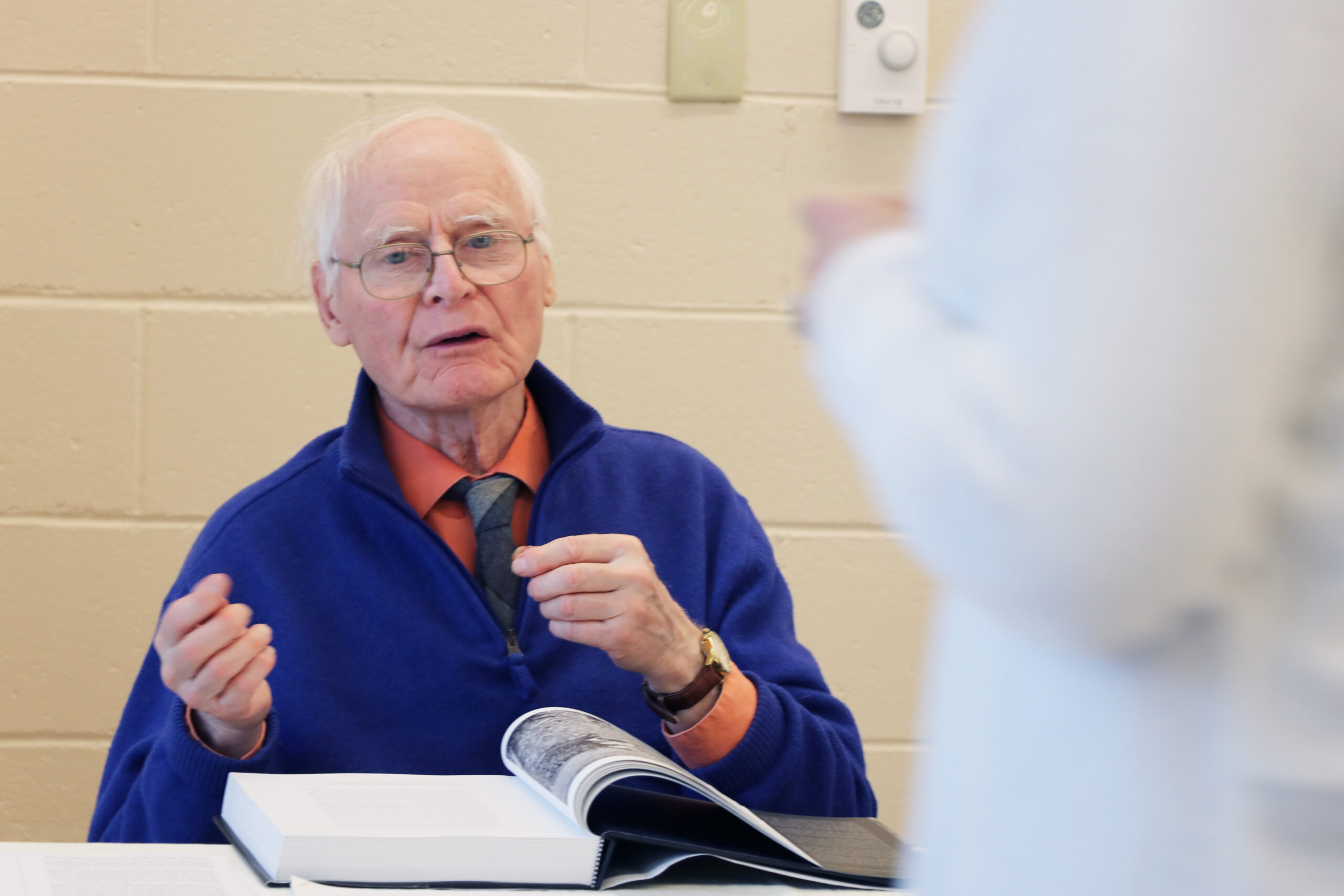Humanized Version
When you hear a name like Dr. Paul Bowery, it probably sparks some immediate thoughts. You might picture someone with deep knowledge, perhaps a person who helps others, or someone who has spent a good deal of time learning. It's interesting, really, how a simple title can paint such a vivid picture in our minds, giving us a first impression of someone even before we know anything more about them.
Titles, you know, they do carry a certain weight, a kind of unspoken message. They tell us a little bit about a person's background, their training, or even their role in the community. So, when we talk about someone with the title of Dr., like Dr. Paul Bowery, it's pretty clear there's a story there, a path of dedication that has led to that particular form of address. It's almost a shorthand for respect, isn't it?
We see these titles everywhere, from official documents to everyday conversations. But what does "Dr." truly mean? And how do people typically use it? We're going to look at the different ways this title works, thinking about what it suggests about someone who bears it, like Dr. Paul Bowery, and how we generally approach communicating with individuals who have earned this special designation. So, in a way, it's about getting a clearer picture of something we often take for granted.
- Amateurallure Lulu
- Bianco Costa
- Abelina Sabrina Leaks
- Gamma Phi Beta Uw Madison
- Copenhagenfitforfifty Nude
Table of Contents
- Biographical Details for Dr. Paul Bowery
- What Does the "Dr." Title Really Represent?
- Is "Dr." Only for Medical Practitioners?
- How Should We Address Someone Like Dr. Paul Bowery?
- The Impact of a Title for Dr. Paul Bowery
- Keeping Track of Information About Dr. Paul Bowery
- When Information Is Limited on Dr. Paul Bowery
- Seeking Information About Dr. Paul Bowery
Biographical Details for Dr. Paul Bowery
You know, it's interesting, but the information we have here doesn't actually give us any personal details about Dr. Paul Bowery himself. We don't have a biography, birth date, or specific professional background for this particular person. So, to be honest, we can't create a table with personal information because that data simply isn't available from the text provided. It's just a name, really, used to help us talk about the concept of the "Dr." title. We're going to focus on what the title means generally, rather than who Dr. Paul Bowery is specifically, as that would be adding information we don't have.
What Does the "Dr." Title Really Represent?
The title "Dr." is, basically, a shorter way to say "doctor." It's a way we refer to someone who has earned a very high academic degree, typically a doctorate, which is the top academic award one can get. Or, you know, it refers to someone who practices medicine, helping people get well. So, it means someone has put in a lot of effort and study, often over many years, to become an expert in their chosen field. It's a sign of significant learning and, in many cases, a special skill set. In some respects, it's a very clear signal of someone's qualifications.
Think about it, when you see "Dr." before a name, like Dr. Paul Bowery, your mind probably jumps to a certain level of education and skill. It's not just a casual form of address; it carries a weight of achievement. People usually use it to show respect for that accomplishment. It's a recognition of the hard work and dedication involved in reaching that professional standing. That, is that, it's more than just a label; it's a statement about someone's expertise.
Is "Dr." Only for Medical Practitioners?
This is a common thought, isn't it? Many people hear "Dr." and immediately think of someone who works in a hospital or a clinic, helping sick people. And yes, that's certainly one major use of the title. But it's not the only one. For instance, someone with a PhD, which is a Doctor of Philosophy degree, is also a "Dr." They might teach at a university, conduct important research, or work in various fields like science, history, or literature. So, you might meet a Dr. Paul Bowery who is a medical professional, or you might meet a Dr. Paul Bowery who is a university professor, or perhaps even a scientist working on new discoveries. It's very flexible, really, the way this title gets used.
The distinction can sometimes be a little fuzzy for people who aren't familiar with academic structures. For example, in some countries, a professor must also hold a doctorate, so you might see titles like "Prof. Dr." This suggests that the "Dr." part is almost like a given, a standard part of being a professor. It's a bit like saying "Mr." in a formal setting; it's just part of the proper way to address someone. So, it's not just about treating illnesses; it's also about a deep level of academic training and contribution. Basically, it shows a person has reached the highest level of education in their area of study.
How Should We Address Someone Like Dr. Paul Bowery?
When it comes to addressing someone with the "Dr." title, there are a few common ways people do it. Typically, you'd say "Dr. [Last Name]," like "Dr. Bowery." Some people prefer to include a period after "Dr." (Dr.), while others leave it out (Dr). As a matter of fact, some folks from places like Italy might prefer "Mr." without a period, because they were taught that a period after an abbreviation means letters were left out at the end. So, it just depends on what you learn and what feels right. The main thing is to use the title as a sign of respect for the person's qualifications. You wouldn't typically say, "Paul is a Dr. at Memorial Hospital," because "Dr." is more of a title you use before a name, rather than a word you use by itself to describe someone's job.
The key point here is that "Dr." is generally an honorific, a title of respect, rather than a common noun. It's not really meant to be used on its own, like saying "He is a doctor." Instead, you'd say "He is a doctor," or "He is Dr. Smith." This applies whether we're talking about a medical doctor or an academic one. It's a subtle point, but it helps show proper form. You know, you might see name boards in places like India where doctors just use "Dr." before their name, and that's usually perfectly fine and accepted. It's about showing proper regard for the person's standing. So, in short, it's about using the title with care and consideration.
The Impact of a Title for Dr. Paul Bowery
A title like "Dr." can really shape how people see someone. When you meet someone introduced as Dr. Paul Bowery, there's an immediate assumption of knowledge, skill, and perhaps even authority. People might expect this person to be well-informed, to offer good advice, or to have a deep grasp of complex subjects. It sets a certain expectation, doesn't it? This isn't just about formal settings; it plays out in everyday interactions too. It influences how others listen to what is said and how they value the information being shared. It's quite a powerful thing, actually, how a few letters can convey so much about a person's standing.
This perception isn't always about what someone *does*, but what they *represent*. A "Dr." often represents years of hard work, a commitment to learning, and a dedication to a particular field. It can open doors and build trust quickly. People are often more inclined to listen to or trust someone with such a title, especially when seeking advice or guidance. So, it's not just a label; it's a marker of credibility that can really make a difference in how someone like Dr. Paul Bowery is received by others. In a way, it's a very effective way to establish a person's expertise.
Keeping Track of Information About Dr. Paul Bowery
In our modern world, we keep track of information in so many ways. For example, people often use services like Google Drive to keep their files and folders organized, syncing them across different devices. This is how we manage vast amounts of data, whether it's for work, personal projects, or just keeping records. You can even find help and tutorials on using these services in official help centers, which is pretty useful. It's just like how we might keep track of details about professionals, perhaps even someone like Dr. Paul Bowery, through various records or digital files. We rely on these systems to store and retrieve what we need, when we need it. So, basically, it's all about making sure information is accessible.
Your online storage, you know, it's often shared across different services, like your Google Drive, your Gmail, and your Google Photos. This means all your digital stuff lives in one big space. It's a bit like how all the information about a person, including their professional titles or any public records, might be spread across different sources. When you need to find something, you might go to a specific place, just like you'd go to drive.google.com on your computer to look at your files. It's about knowing where to look for the piece of information you need, whether it's a document or details about someone like Dr. Paul Bowery. That, is that, it helps us keep things in order.
When Information Is Limited on Dr. Paul Bowery
Sometimes, we run into limits with how much information we can store or access. For instance, if your digital account reaches its storage capacity, you won't be able to add new files or create more documents in your drive. This can be a bit frustrating, can't it? It's a bit like when you're trying to find out more about someone, perhaps even Dr. Paul Bowery, and the available information is just limited. You might find some basic details, but not everything you hoped for. This can happen if records are private, or simply not widely available. So, in some respects, it's about hitting a wall when you're trying to gather more knowledge.
It's important to remember that not all information is public, and some things are kept private for good reasons. Just as you might not be able to upload more files if your storage is full, you might not be able to find every piece of information about a person. This is particularly true for personal details or private professional matters. When you're looking for information, especially about someone like Dr. Paul Bowery, you might encounter these kinds of boundaries. It's just how things work sometimes, with privacy and data limits. You know, it's about respecting those boundaries too.
Seeking Information About Dr. Paul Bowery
If you're looking for information, whether it's about a location or a person, there are typical ways to go about it. For instance, if you want to find a place, you might open Google Maps on your computer and put in coordinates or a name in the search box. Similarly, if you were trying to find public information about someone like Dr. Paul Bowery, you might use search engines or look for official directories. It's about using the right tools to find what you need. This could mean looking at professional websites, academic listings, or public records, depending on what kind of information you're after. Basically, it's about knowing where to start your search.
It's also worth noting that when you're looking for health information, it's really important to know that what you find online isn't medical advice. If you have a health concern, you should always speak with a healthcare provider. This is a crucial point, as general information found through a search, even if it mentions a "Dr.," is not a substitute for professional consultation. So, while you might look up general details about someone like Dr. Paul Bowery, if your need is for medical help, you'd contact a real doctor for that. It's a matter of using information responsibly and knowing when to seek direct professional help. You know, it's about getting the right kind of help for your needs.
- Sirvan Khosravi Los Angeles
- Jesus Saves Graffiti
- Alisa Winkler Nude
- Khancherz Leaked
- Amateurallure Lulu


